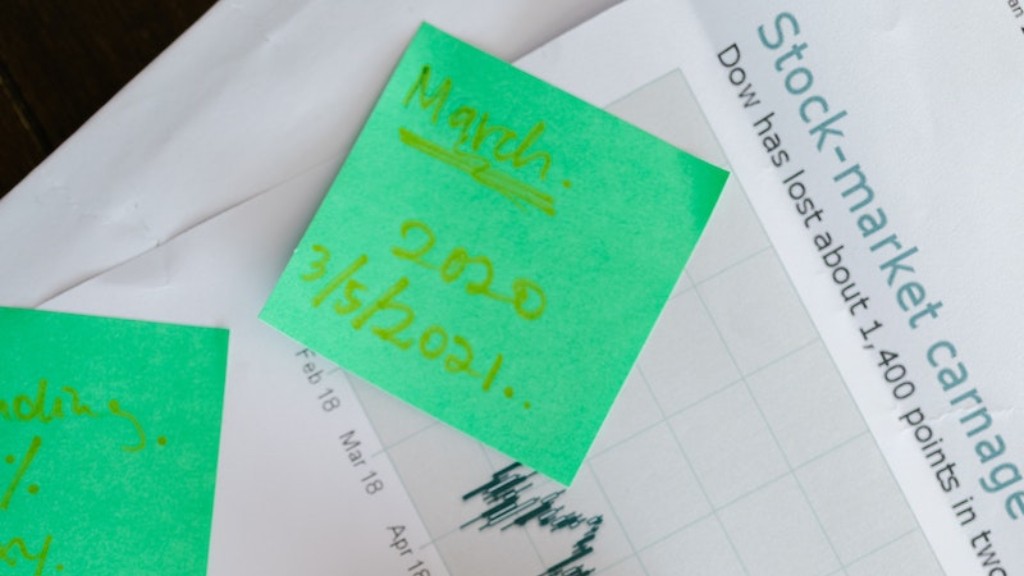There are a number of ways to become a digital marketing analyst. Digital marketing analysts need to have a strong understanding of data and analytics, as well as a keen eye for detail and an aptitude for marketing.
Some digital marketing analysts may come from a background in marketing or advertising, while others may have more of a background in data science or analytics. In either case, digital marketing analysts need to be able to effectively communicate with both marketing and technical teams, as well as have a strong understanding of both marketing and data.
Digital marketing analysts can find jobs in a variety of industries, including technology, retail, e-commerce, and more. Many digital marketing analysts work in-house for a specific company, while others may work for a consultancy or agency.
There is no one-size-fits-all answer to this question, as the best way to become a digital marketing analyst may vary depending on your previous experience and education. However, some tips on how to become a digital marketing analyst include studying analytics and marketing trends, learning how to use data to inform marketing decisions, and developing strong writing and communication skills.
What does a digital marketing analyst do?
Digital marketing analysts play an important role in the success of digital marketing campaigns. They use data and analytics to monitor online marketing trends, analyze campaign performance, and develop strategies for future campaigns. They also create data visualizations and present insights and findings to colleagues and clients.
A digital analyst is a professional who uses data to help companies make better business decisions. As a digital analyst, you will need to have at least an associate’s degree in finance, logistics, mathematics, or statistics. You should also have experience with multiple analytics tools and software.
What qualifications do you need for digital marketing
A bachelor’s degree in marketing or a related field is typically required for most marketing positions. A degree in marketing can help you work toward becoming a marketing manager, and will cover aspects such as marketing, market research, sales, consumer behavior, communication methods, and technology.
There are a lot of people who are fascinated by data. They enjoy looking at numbers and figuring out what they mean. If you are one of these people, then a career as a digital marketing analyst might be a good fit for you. You will be able to use your skills to help businesses make better decisions about their marketing campaigns.
Is digital marketing a stressful job?
A marketing career is quite stressful. It requires a lot to be done on a daily basis. Pacing yourself makes it quite easier. It will save quite some time if you’ll start with easy tasks first.
A digital marketing analyst is responsible for developing and implementing marketing strategies for a company’s digital presence. This includes managing and optimizing website content, developing and managing digital advertising campaigns, and managing social media accounts.
A digital marketing analyst must have both hard and soft skills in order to be successful. Hard skills include things like experience with web development, experience with digital marketing tools and platforms, and analytical skills. Soft skills include things like communication, project management, and problem solving.
How do I become an analyst with no experience?
A data analyst is a professional who is responsible for analyzing data and convert it into useful information. A data analyst can work in various industries such as healthcare, finance, marketing, etc.
There are many ways to become a data analyst. One way is to receive formal training through a degree or bootcamp. Many data analyst roles require a bachelor’s degree in mathematics, statistics, computer science, or a related field. Another way to become a data analyst is to learn the required skills through self-directed learning.
Once you have the required skills, you can break into the chosen industry by applying for entry-level data analyst roles. Many companies are always in need of data analysts to help them make better decisions. With the right skills and a little bit of experience, you can become a data analyst and make a difference in any industry.
A data analytics certification can help you learn the necessary skills to become a data analyst. This type of certification is typically project-based, so you can learn at your own pace and get hands-on experience with data analytics tools and techniques.
What skills does a digital marketing analyst need
Top digital marketing analysts must be able to analyze campaign data and educate marketers or sales staff on how to use these results to generate leads/sales. They must be strategic, analytical, and have strong communication skills, and be able to relay technical information/data/results to non-technical team members.
Digital marketing is a very dynamic and rapidly growing field. There are many skills required to start a career in digital marketing, but some essential skills include: community management, email marketing, content marketing, business analytics, and excellent communication.
A degree in marketing or a related field can be beneficial for a career in digital marketing, as it can provide a foundation in marketing concepts and principles. However, digital marketing is such a fast-paced and constantly changing field that it is also important to be constantly learning new skills and keeping up with the latest trends.
Some other important skills to consider for a career in digital marketing include SEO (search engine optimization) and SEM (search engine marketing), which are both key to optimizing website ranking and visibility in search engines.
How to get into digital marketing with no experience?
Digital marketing is one of the most in-demand skills in the modern job market. Unfortunately, it can be hard to get a job in digital marketing without any experience. However, there are a few things you can do to improve your chances.
First, pick a specialty that interests you. Then, build your foundational knowledge in that area. You can do this by taking a course or getting a certificate. Once you have some basic knowledge, start building a digital marketing portfolio. This can include projects you’ve worked on, articles you’ve written, or any other relevant content.
Then, start networking. Connect with people in the industry online and in-person. Attend industry events and meetups. This will help you meet potential employers and get your name out there. Finally, look for agency and in-house jobs. Consider related jobs, such as social media management, copywriting, or web design. These can be stepping stones to a career in digital marketing.
A degree is not necessary to be a digital marketer, but it is helpful to have a combination of experience, expertise, and knowledge in the field. However, it is important to understand digital marketing as a practitioner in order to be proficient.
How do I start a career in digital analytics
A digital analyst is someone who uses data to help businesses make better decisions. The qualifications for this career begin with a bachelor’s degree in computer science, marketing, databases, or a related field. Some employers may prefer a master’s degree in a field such as statistics, economics, or data analysis. You can also earn your doctorate degree to be more competitive.
Digital marketing is a rapidly evolving field that requires both hard skills and soft skills to be successful. To be a successful digital marketer, you’ll need to have a strong foundation in the core concepts and tools of the trade. You’ll also need to develop the essential soft skills that will help you build relationships, solve problems, and provide value to your customers and clients. While hard skills can be learned relatively quickly, soft skills take time and practice to master. If you’re serious about a career in digital marketing, make sure you’re investing in both your hard and soft skills. With the right mix of skills, you’ll be well on your way to success.
Is it hard to get a job in digital marketing?
The market for digital marketing jobs is growing rapidly, with more open job postings than qualified candidates. This is good news for anyone looking to get hired in digital marketing, as the market is ripe for candidates with the right skills. With more demand for skills than supply, now is a great time to look for a job in digital marketing. Candidates who are able to demonstrate their digital marketing skills and knowledge will be in high demand by employers.
The future looks bright for digital marketers as businesses increasingly compete on the basis of data, resulting in a growing demand for skilled professionals in the field. 774% of businesses are now investing in website optimization and 69% in digital media, so there are plenty of opportunities for those with the right skillset. With the right training and experience, digital marketers can expect to enjoy a prosperous career in the years to come.
Conclusion
There is no one specific path to becoming a digital marketing analyst, but there are some key steps you can take to improve your chances of success. First, consider pursuing a degree or certification in digital marketing, marketing, or a related field. This will give you the skills and knowledge you need to be successful in the role. Second, gain experience working in digital marketing, whether through internships, part-time jobs, or full-time positions. This will help you develop the skills and strategy needed to be successful in the role. Finally, stay up to date on the latest digital marketing trends and best practices to ensure you are providing the most value to your team and company.
Digital marketing is a great career choice for those who are interested in technology and marketing. There are many different aspects to digital marketing, and analysts are responsible for understanding how each one works and how they can be used together to create successful marketing campaigns. If you’re interested in a career in digital marketing, becoming a digital marketing analyst is a great place to start.





